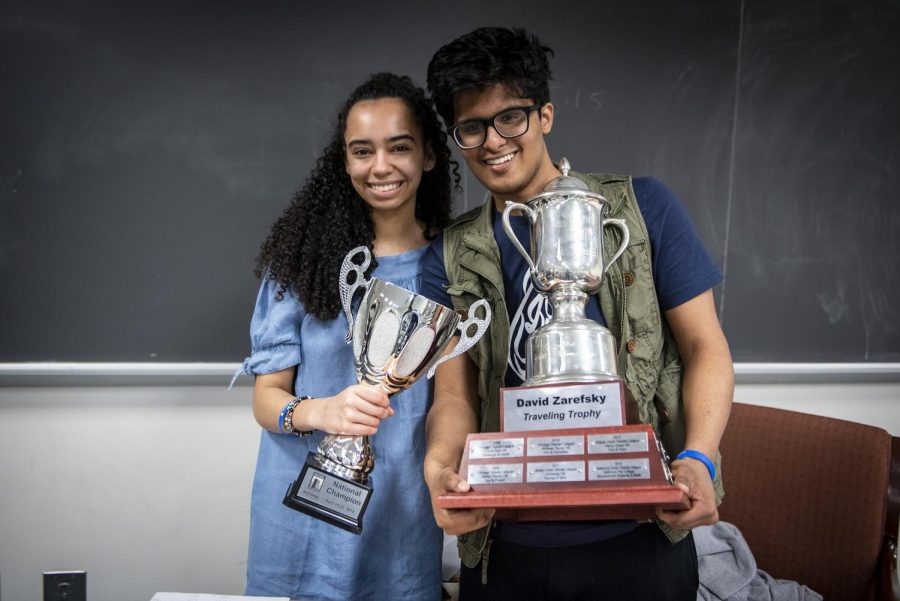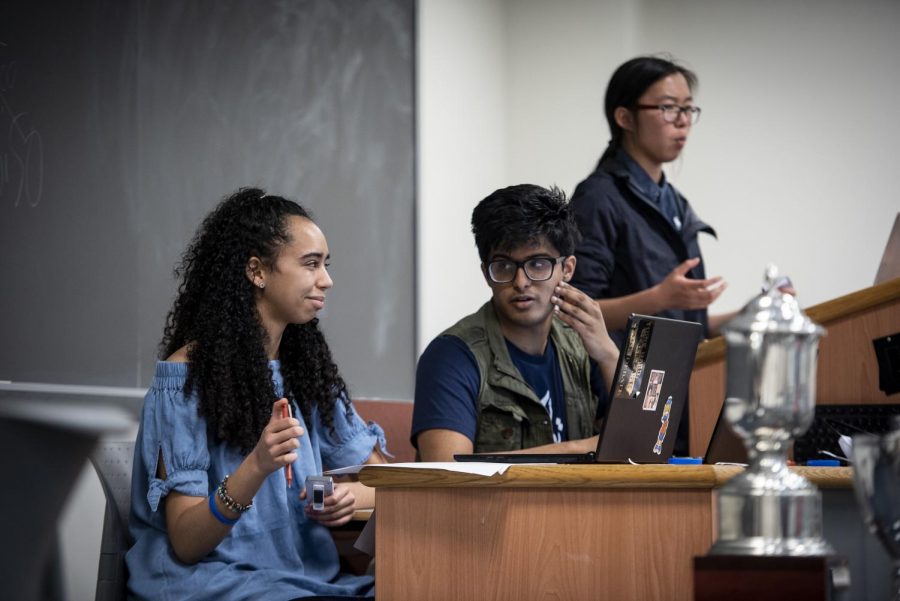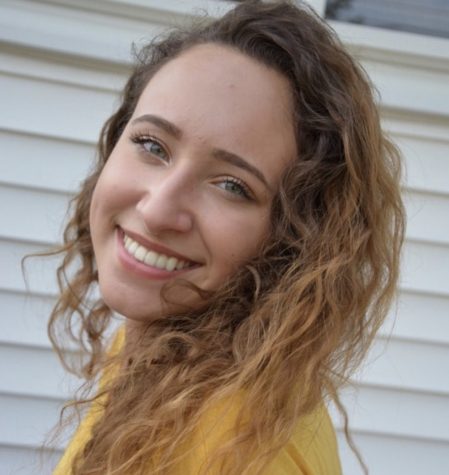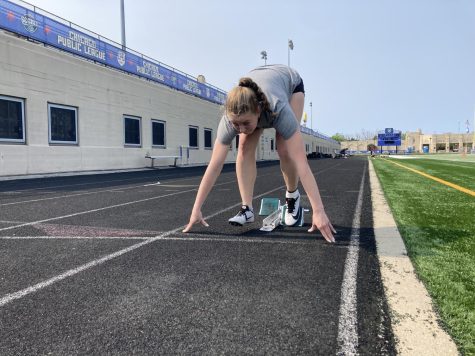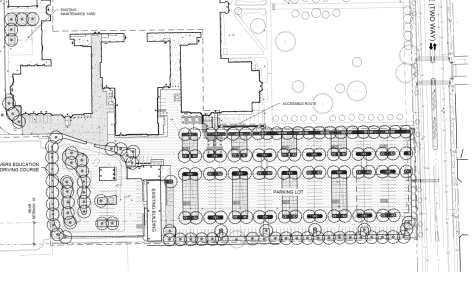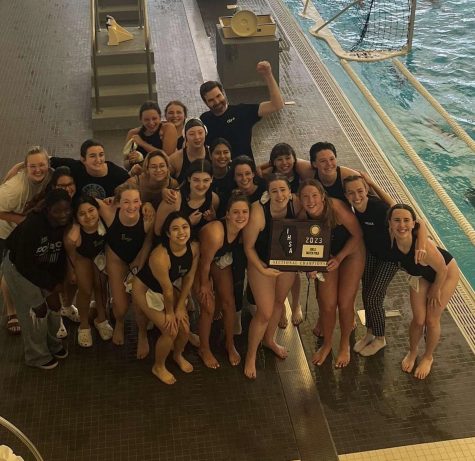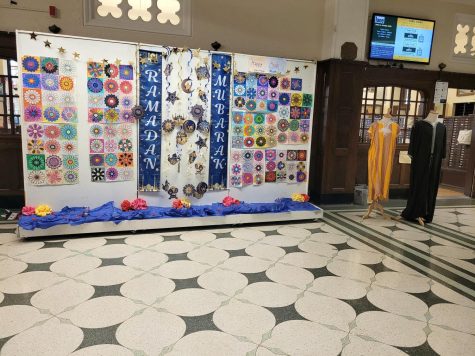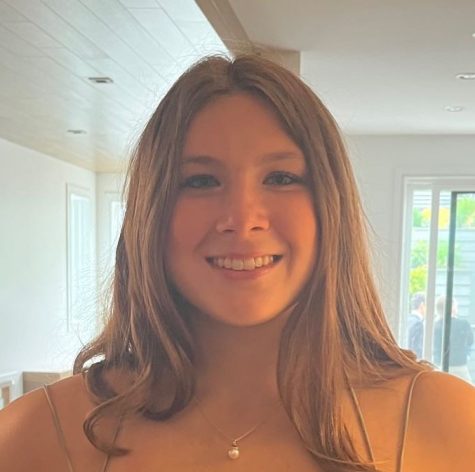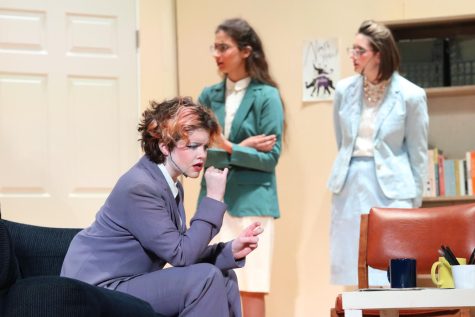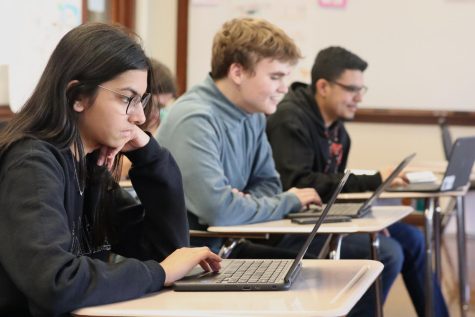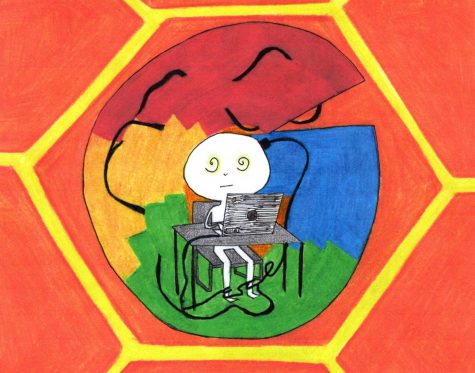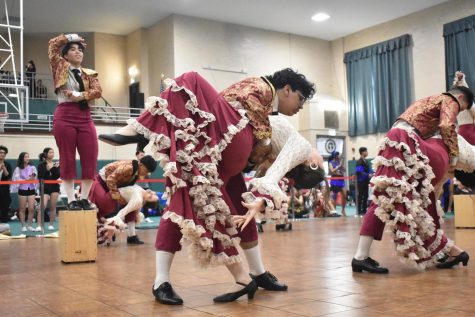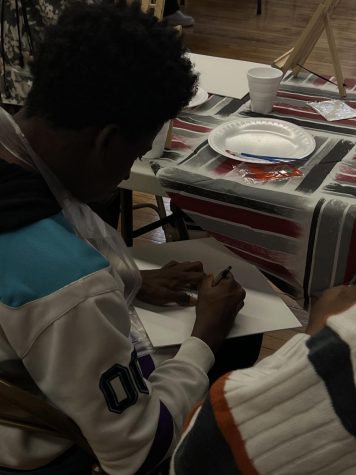Debaters win Urban Debate National Championship in D.C.
Ariana Collazo and Ousaf Moqeet holding the championship trophy. The pair had been debating for over three hours on April 22. The Urban Debate National Championship was held April 20-22 at George Washington University, where Collazo and Moqeet debated long hours from 8 a.m. to 10 p.m. (Photos courtesy of Chicago Debate League)
June 7, 2018
Being able to cite different authors, research various topics and even write poetry are steps that Ariana Collazo, Div. 977, and Ousaf Moqeet, Div. 874, had to take in order to prepare for their debate rounds. These steps made it possible for them to attain success at the Urban Debate National Championship (NAUDL) April 20-22.
Initially, Collazo and Moqeet placed at the Mayer Brown NAUDL Qualifier on March 3 in Chicago, where they advanced to the City Championship April 7-8. Before the Mayer Brown Qualifier, Collazo received the title of top speaker at one of the highest debate tournaments in Illinois, IHSA Policy Division, which spanned March 16-17.
NAUDL was held at George Washington University in Washington, D.C.
“It was really great for us,” three-year debater Moqeet said. “We learned a lot, we grew a lot and we really saw how practice can make perfect.”
With regard to to IHSA Policy Division, Collazo recounted her own emotions, mentioning those of Mr. Fine, English teacher and debate coach.
“Mr. Fine said I had tears in my eyes, but I don’t think I had tears in my eyes,” Collazo said. “I was really proud of myself. Mr. Fine had tears in his eyes. I was super proud and very excited.”
Fine explained the differences between two styles of debate. He said that Lane’s debate team is in a policy debate league, meaning that debaters have a national topic of focus for which they devise solutions.
The 2018 topic of debate was educational reform, Fine said.
The other debate style consists of critical debate. Collazo and Moqeet are a critical debate team. Fine explained how the pair declined the topic of debate by focusing on their own subject.
“They basically reject that affirmative and say, ‘We’re high school kids and we have some other issue going on that we have to address before we can talk about education reform,’” Fine said.
According to Dictionary.com, an affirmative is a statement defended in debate. Fine said that Collazo and Moqeet’s affirmative linked a “black feminist debate” to education, communicating the idea that black women are being mistreated in schools.
“Many of the debate judges or debate teams — suburban debate teams or other debate teams that don’t necessarily personally experience the same types of challenges that someone like Ariana or Ousaf experiences — they dismiss Ousaf and Ariana’s arguments to say, ‘This isn’t topical,’” Fine said.
The pair focused their energy on researching and reading about vital issues pertaining to arguments they’d be compiling during debate rounds before tournaments.
“You can give practice speeches, but reading helps because when you read a lot of books on the specific arguments you’re making, then you start to develop the language of the writer and you sound smarter when you’re speaking,” Collazo, Div. 977, said.
Moqeet emphasized the concept of “spreading,” or speed reading. According to the Wall Street Journal, the act of speed talking can have debaters delivering their points at around 300 words per minute, based on participants in Lincoln-Douglas debates. A Lincoln-Douglas debate is a traditional style of one-on-one debating, according to the first edition of “Introduction to Lincoln-Douglas Debate.”
“Being able to contest people at that high level is a part of that competition,” Moqeet said. “People who spread faster and in a more efficient way are the ones who will likely win the round: whoever can convey the most ideas per minute.”
Besides debating in a variety of tournaments, Collazo and Moqeet started their own organization, Friends of Urban Debate League (FOUDL).
FOUDL aims to ensure that students coming from low-income backgrounds or identifying as a minority are able to highlight their experience debating and are able to connect and utilize higher-quality resources, according to Moqeet.
Fine considers Collazo and Moqueet to be inspiring younger debaters to pursue their own debate critiques, whether that be in the realms of a queer feminist or a Latinx affirmative.
Fine explained how Collazo and Moqeet would answer questions posed by those who might have been reluctant to listen to their affirmative that questions changes in Congress.
“And they’ll say, ‘We’re creating positive change right here in this room,’” Fine said. “Someone can leave this debate round more enlightened. We’re debating about things that matter to us.’”

